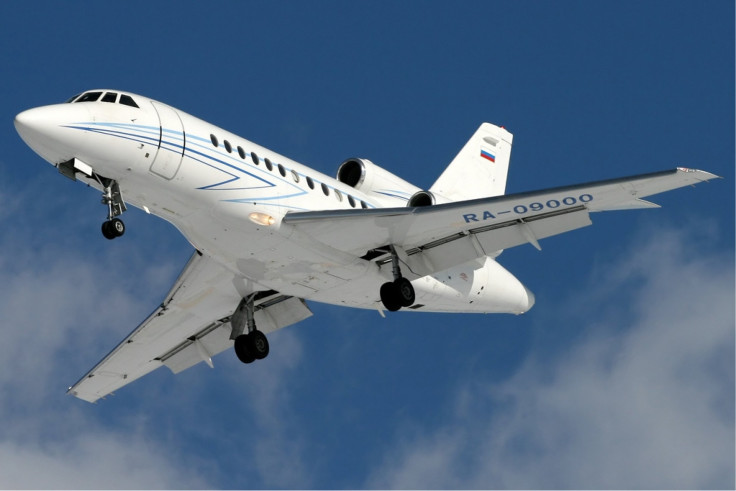For Sale: Presidential Jet, Make Best Offer: Malawi Govt.

The government of the African nation said it will accept bids for the 14-seat presidential jet as the state tries to generate desperately needed revenue and cut the costs of running the government.
"The Malawi government has decided that the jet should be disposed of ‘on as-is basis’ to an interested individual or firm," the office of President Joyce Banda said in a tender notice.
The office said the 15-year-old aircraft -- a French-made Dassault Falcon 900EX -- is in “perfect flying condition” and can fly a range of 4,500 nautical miles nonstop.
Bids will open on Feb. 20.
Proceeds from the sale would be used for basic services for Malawi’s poor, Banda said, according to the BBC.
Banda, who took over the country upon the sudden death last April of former President Bingu wa Mutharika, said she does not need such a luxury item as her own jet.
According to Agence France-Presse, Mutharika bought the jet for about $13.3 million five years ago -- a transaction that caused much consternation in both Malawi and in Europe, due to the African nation’s extreme poverty. At the time, Mutharika said the vehicle would be “cheap to run.”
In retaliation, the United Kingdom reduced its aid to Malawi by $4.4 million.
The country depends heavily (at least half of its annual budget) on Western financial donors.
Banda had been seeking to sell the jet since last May. At the time, she told reporters in her official residence in the capital Lilongwe that “I can well use private airliners. I am already used to hitchhiking.”
During her reign, Banda has sought restore frayed relations with Western donor states and entities, including Britain, the U.S., Germany, Norway, the European Union, the World Bank and the African Development Bank. The West had become alienated by Mutharika’s moves against democracy, as well as his profligacy.
In May 2012, at the urging of the International Monetary Fund, Banda devalued the local currency, the kwacha (after Mutharika refused to).
Meanwhile, Malawi remains in the grip of deep grinding poverty.
According to Raising Malawi.org, more than 40 percent of the country’s population (mostly households led by women) lives in poverty.
“Agriculture is central to the economy, but land distribution is unequal, and crops are highly vulnerable to frequent droughts,” the group stated.
“Poor education and limited vocational training programs mean there are few opportunities for Malawians to improve their situations. Malawians deal with hunger and malnutrition on a daily basis. According to USAID, 45 percent of the country’s children under age five are stunted due to the lack of adequate nutrition.
The CIA/World Factbook describes Malawi as one the world’s “most densely populated and least developed countries.”
© Copyright IBTimes 2025. All rights reserved.



















